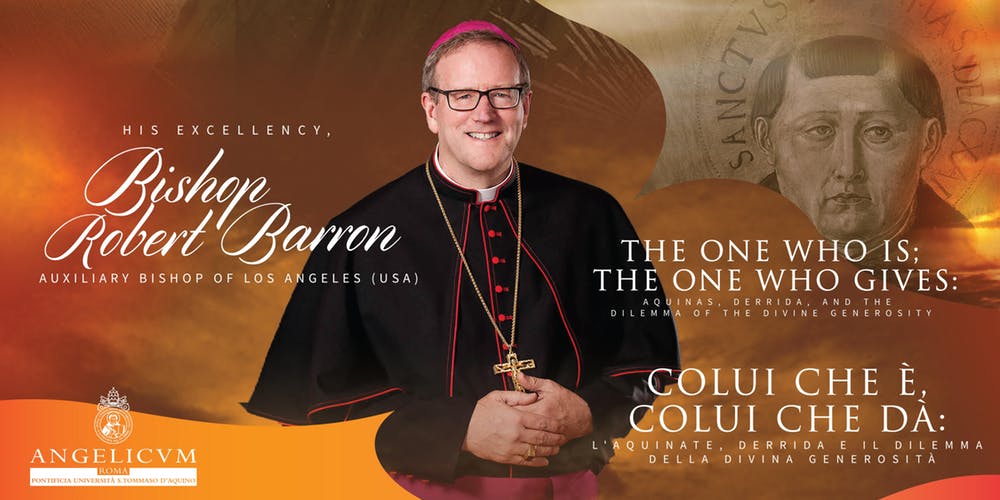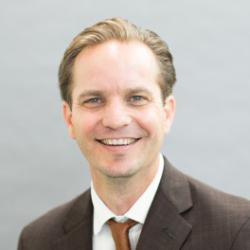This week’s Ash Wednesday marked the first day of Lent – a period of intensive spiritual renewal in many Christian liturgical calendars. Lent is a season lasting exactly 40 days, as we imitate the time Jesus spent on retreat in the desert in preparation for the giving of his life to us on the cross, the ultimate act of love or caritas for all humanity.
For those concerned with their own improvement, Lenten spiritual training rests on three basic pillars: prayer, fasting and almsgiving.
Most faithful are good at exercising the first two, such as increasing the number of rosaries prayed each week, skipping meals and abstaining from alcohol. However, fewer, it seems, focus much on the third spiritual pillar, the charitable giving of money or some other good necessary for the poor and needy. Why is this so?
The Most Reverend Robert Barron, an auxiliary bishop from the Archdiocese of Los Angeles, is one of the best in the field when explaining nitpicky moral-metaphysical questions. According him, charity is an “aporia” or “anomaly of gift.” Charity is a very difficult, virtually illogical form of giving. It is even harder to practice in a secular materialist culture that fails to recognize God’s unconditional love for us and not seek his grace in our own charitable endeavors;.
During a March 7 public lecture (“The One Who is, the One Who Gives”) which Barron delivered upon receiving an honorary doctorate in theology from Rome’s Pontifical University of St. Thomas Aquinas, the California bishop explained why we are probably not as good at the charitable giving of alms as would like think we are.

Throughout his 45-minute address, Barron dug deep down into the ontological, existential causality of charity and giving.
He said that we might often confuse our “gift giving capacity” with the “theological virtue of charity.” Gift giving, according to Barron, is good and natural to our being and essence: as God’s creatures “we …show up in the world in gift-form.” He said when we are able to acknowledge that our existence is given, we are grateful and want to give back. He noted that a clue to the ontology of ‘giving’ and ‘giving back’ is found in the German language – in the very same word gift used in English. He said in acknowledging the existence of something we say ‘there it is’. “This metaphysical truth is beautifully honored in the German expression for “there is,” namely, es gibt (it gives).”
Hence, according to Barron, our default modus operandi as created beings is to recognize that our life is a gift and we naturally show gratitude by giving back – and we expect others to follow suit. We give back to the original “First Giver” by devoting our lives to Him, giving back all our talent in serving our vocation. And we also pay the gift of life forward – ‘re-gifting’ it – by procreating other human lives and giving to others the possessions they lack to live well. We are disappointed when others don’t help us or recognize our gift.
We have a built-in ontological instinct for gratitude which automatically translates into gift giving and wanting our love reciprocated.
This is all good but, Barron said, we find in gift giving a problem which is not found in charity.
Giving qua giving is naturally transactional – we don’t give just to give but also to receive and then give back again. In fact, giving is so naturally reciprocal that there may arise confusion of distributive justice and overall moral purpose.
Barron explained that in the German word – gift – there is also a very negative connotation. Gift in the secondary meaning of the German also denotes “poison”.
He, therefore, explained how gift giving may actually have a toxic effect in a series of reciprocated “mutually destructive” exchanges. This happens, he said, when, “in some cultures, one act of hospitality would awaken in the one who received it an act of even more extravagant hospitality, which would, in turn, compel the original giver to give even more generously, until the two communities essentially ruined one another through a kind of mutual shaming.”
Barron said while there is nothing essentially wrong in being more generous than your original benefactor, it is possible that the giver and receiver might want to financially overwhelm one another – as if strategically planning each other’s defeat, willfully or not. “This is why [we] could playfully suggest an etymological link between ‘hospitality’ and hostis (enemy in Latin).”
But with charity there is no real transaction, victory or defeat wanted. In charity, our basic desire it to give for the goodness of giving (i.e. helping). Full stop. Charity should be naturally done without needing to have anything in return, getting something we lack. The ideal is to act just like God gives because he exists perfectly and lacks nothing. He gives because “He is the One Who gives,” said Barron. We can only strive and struggle to give charitably. Never like God gives.
In one of his popular “Word on Fire” podcast videos, Barron said that when practicing almsgiving during Lent, we get a sense of what unconditional charity means with lots of little spontaneous acts, such as giving “whenever you get something in the mail asking you for money.”
“Maybe you give them 5 dollars. I don’t care. ..make it a practice…Whenever you see a homeless person during Lent, give them something. Don’t asking any questions. Don’t weigh the pros and cons. Just give them something.”
Obviously Barron’s point is not without controversy. By mere common sense, we know we cannot give alms charitably without some rational judgement about their just use and purpose. We wouldn’t give alms spontaneously to infanticide projects just as as we wouldn’t purchase a six-pack of beer for a poor drunkard on the street corner.
Barron’s purposeful exaggeration is not about discrediting the need for moral prudence and temperance in our charitable almsgiving. Barron’s point is to gain a sense of what it is to break free from being transactional or at least free from desiring reciprocity.
The bishop said, when summing up his lecture, that if it is true that by our very “gift-form” nature and the economy of exchange we desire transaction and reciprocity of giving, then uncondtional charity really is a theological virtue. It is not strictly humanly possible without God’s own gift of grace to overcome the imperfections of our gift giving nature.
Photo credit: Wikipedia Commons, Eventbrite.

